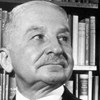There are people who assert that something must be wrong with the social sciences because social conditions are unsatisfactory. The natural sciences have achieved amazing results in the last two or three hundred years, and the practical utilization of these results has succeeded in improving the general standard of living to an unprecedented extent. But, say these critics, the social sciences have utterly failed in the task of rendering social conditions more satisfactory. They have not stamped out misery and starvation, economic crises and unemployment, war and tyranny. They are sterile and have contributed nothing to the promotion of happiness and human welfare.
These grumblers do not realize that the tremendous progress of technological methods of production and the resulting increase in wealth and welfare were feasible only through the pursuit of those liberal policies which were the practical application of the teachings of economics. It was the ideas of the classical economists that removed the checks imposed by age-old laws, customs, and prejudices upon technological improvement and freed the genius of reformers and innovators from the straitjackets of the guilds, government tutelage, and social pressure of various kinds. It was they that reduced the prestige of conquerors and expropriators and demonstrated the social benefits derived from business activity. None of the great modern inventions would have been put to use if the mentality of the pre-capitalistic era had not been thoroughly demolished by the economists. What is commonly called the “industrial revolution” was an offspring of the ideological revolution brought about by the doctrines of the economists. The economists exploded the old tenets: that it is unfair and unjust to outdo a competitor by producing better and cheaper goods; that it is iniquitous to deviate from the traditional methods of production; that machines are an evil because they bring about unemployment; that it is one of the tasks of civil government to prevent efficient businessmen from getting rich and to protect the less efficient against the competition of the more efficient; that to restrict the freedom of entrepreneurs by government compulsion or by coercion on the part of other social powers is an appropriate means to promote a nation’s well- being. British political economy and French Physiocracy were the pacemakers of modern capitalism. It is they that made possible the progress of the natural sciences that has heaped benefits upon the masses. What is wrong with our age is precisely the widespread ignorance of the role which these policies of economic freedom played in the technical evolution of the last two hundred years. It is true that economics is a theoretical science and as such abstains from any judgment of value. It is not its task to tell people what ends they should aim at. It is a science of the means to be applied for the attainment of ends chosen, not, to be sure, a science of the choosing of ends. Ultimate decisions, the valuations and the choosing of ends, are beyond the scope of any science. Science never tells a man how he should act; it merely shows how a man must act if he wants to attain definite ends.
The Practice of Human Action
Tuesday, September 1, 1981
Republish
Republish This Article
This work is licensed under a Creative Commons Attribution 4.0 International License, except for material where copyright is reserved by a party other than FEE.
Please do not edit the piece, ensure that you attribute the author and mention that this article was originally published on FEE.org

